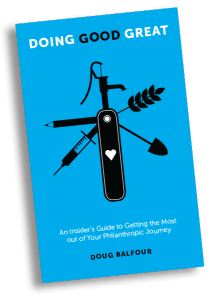Failure Is An Option
The launch followed intensive product research and development and extensive consumer testing. It was backed by huge marketing and advertising campaigns. Millions of dollars were spent getting the product manufactured and distributed worldwide, just in time for the launch date.
Finally, after all this preparation and expense, April 23, 1985 arrived. Launch Day. New Coke arrived on the shelves.
Within minutes the firestorm of despair struck. Imagine the force of the reaction if this happened today in the era of instant social media feedback!
Loyal Coke customers hated the taste of it. They hated the very idea of it. How dare the company change the hallowed formula after 99 years? One of the more humorous responses was a letter that arrived on the desk of Chairman and CEO Roberto Goizueta addressed to “Chief Dodo, The Coca-Cola Company.”
Goizueta later said he was terribly offended that the letter was actually delivered to him. Why was he surprised? After all, everyone at Coke knew who ultimately approved New Coke.
On July 11, 1985, after 79 days of unending expressions of customer anger coupled with a barrage of media wonder about how Coke could be so stupid, original formula Coke returned. Joy broke out all over Coke Land.
Coke took a huge risk, got hammered for it, retreated rapidly, and went on to continue thriving as a global powerhouse.
Failures happen to everyone, even to global corporations with extensive resources. It’s how you deal with failure that separates those who go on to greatness from those lost to the annals of history.
Here are the lessons Coke taught us. You must accept that you failed and move on sooner rather than later. You must acknowledge you screwed up and offer appropriate apologies and mea culpas. You must figure out how to remedy the failure…and do it quickly. Coke could have kept hoping New Coke would eventually win over their customers. Instead they swiftly decided to cut their losses and emerged stronger than ever.
The failure to fail well often occurs because those in the ranks are unwilling to voice their concerns to those at the top. A friend who used to work for Astra Zeneca once shared with me the story of a new drug in development that went into final trials in spite of those working on the drug knowing it was going to fail. Why? Those at the top had already spent hundreds of millions developing the drug and didn’t want to hear that the billions in sales they envisioned were actually a hallucination.
Successful failure, as Doug Balfour writes in his wonderful book about his life and lessons learn in global philanthropy, Doing Good Great,is a learning experience. It’s not about apportioning blame, it’s not about finding scapegoats, it’s not about complaining how the world makes it impossible to succeed.
Successful failure is about empowering people to take chances and risk failure, and if failure comes, dealing with it dispassionately and learning from it. It’s about applying its lessons to your next endeavor.
Future success so often depends on past failure. The lessons learned enable you to be better prepared, plan more effectively, think things through in different ways, and ultimately create better ideas and ways of moving forward.
Successful failure, a step on the way to future success.
(In the spirit of full disclosure, I am Strategic Advisor to Doug Balfour and his company, Geneva Global so perhaps I am a bit biased about Doing Good Great. But at most, only a bit. It really is a great book and resource.)


Failure isn’t just an option, it’s an inevitability for people who do stuff. The only really stupid failure I can think of is to keep doing the same thing that didn’t work over and over again. I wish I could learn from others’ mistakes, but it’s my own failures that teach me. The game wouldn’t be any fun if everything went according to Hoyle… or would it?